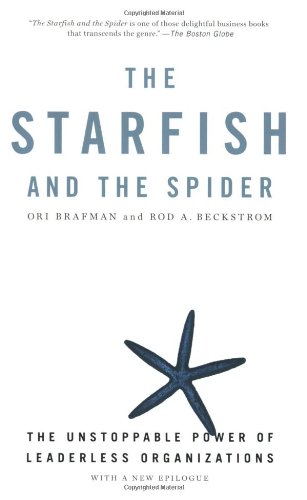'Worship' maybe one of the most contentious and divisive aspects of Christianity. From the Greek Orthodox worship which has low participation from the worshipers through a structured 'hymn-sandwich' through a 'said service' with no music at all to the jamboree of music from the Charismatics.
So let's start with a definition...
Definition of worship from the Oxford English Dictionary:
noun
1 [mass noun] the feeling or expression of reverence and adoration for a deity:worship of the Mother Goddessancestor worship
religious rites or ceremonies, constituting a formal expression of reverence for a deity:the church was opened for public worship
great admiration or devotion shown towards a person or principle:the worship of celebrity and wealth
archaic honour given to someone in recognition of their merit.
2 [as title] (His/Your Worship) chiefly British used in addressing or referring to an important or high-ranking person, especially a magistrate or mayor:we were soon joined by His Worship the Mayor
verb worships, worshipping, worshipped; US also worships, worshiping, worshiped)
[with object]
show reverence and adoration for (a deity):
the Maya built jungle pyramids to worship their gods
[no object] take part in a religious ceremony:the family worshipped at Trinity Church
feel great admiration or devotion for:she adores her sons and they worship her
Personal and Corporate Worship
Demonstrably there are two uses of the word, firstly in some sort of corporate or collective sense and secondly in an individual or private sense. Whereas many aspects of our lives, indeed possibly all of our lives, can be defined as worship in the sense of expressing great admiration or devotion towards God, it is the sense of a formal expression of reverence towards a deity that often causes the wide differences of practice.
Music styles
Frequently at the core to this difference is music, and especially corporate singing. Indeed for many from the Evangelical tradition the word 'worship' has become a synonym for singing. This is all well and good if you either enjoy singing or find that singing helps you to express reverence and adoration for God. If not, then you will struggle.
Music itself is something that can divide: From classical to techno-beat the gulf is as wide as the ocean. Take Mussorgsky's '
Pictures at an Exhibition'; as a piano duet it left me cold, as an orchestral piece I was totally turned off, but when the progressive rock band
Emerson, Lake and Palmer turned it into album I found it captivating, though the other rock version by
Tangerine Dream less so. So when someone suggests that maybe I would '
happily sit and listen to a rendition of Handel's Messiah', I'm afraid nothing could be further from the truth.
Having said that, years ago as a sound editor for the BBC I spent the morning editing the Easter Day service for Radio Four and the afternoon a classical recital for Radio Three. The music for the Easter Day service was very poor, and had it not been a programme for the Religious Programmes Department it would have been rejected. I found myself cringing and feeling embarrassed to admit to being a Christian throughout the morning. Conversely, although I am not a fan of classical music, and can admit to falling asleep in an Ashkenazy recital I was recording; something in the music of the afternoon allowed me to worship our Father.
Worship and Creativity
For me, worship, creativity and excellence are inextricably linked: A piece of art, be it music, painting or cinematography that is not striving for excellence is making a statement to God that He doesn't matter. When God created the world, He stood back and looked at His handiwork and said 'It's good'. The Radio Four service was not good, the Radio Three recital was. One helped me to worship, the other hindered.
But right now I am thinking particularly about corporate or collective worship. And here I have a problem. I struggle in so many gatherings of followers of Jesus that singing takes an undue place in the meeting. There is only one reference in Scripture to Jesus singing... though of course Scripture doesn't record every activity of our Lord but it does record singing and music taking a lot of time in both the Old and New Testaments.
Music certainly was a way that some people used to convey praise to God. I'm sure that God enjoys some of it, yet other parts I am not so sure. As Adrian Plass put it humorously, some of the songs that people claim to have 'received from the Lord' he feels maybe He was glad to get rid of them! We don't go into the congregation and grab random people to play the piano or organ or whatever, yet everyone is expected to sing even if they cannot.
Worship and Scripture
But the question is, in the recorded times of singing and music in Scripture, were all singing or playing musical instruments, or were many just being there, more like Orthodox worship? We cannot tell. Much of Scripture is descriptive and some of the prescriptive are difficult. Take
1 Corinthians 14: 26-40, a passage that is prescriptive about a gathering of believers.
26 What then shall we say, brothers and sisters? When you come together, each of you has a hymn, or a word of instruction, a revelation, a tongue or an interpretation. Everything must be done so that the church may be built up. 27 If anyone speaks in a tongue, two—or at the most three—should speak, one at a time, and someone must interpret. 28 If there is no interpreter, the speaker should keep quiet in the church and speak to himself and to God.
29 Two or three prophets should speak, and the others should weigh carefully what is said. 30 And if a revelation comes to someone who is sitting down, the first speaker should stop. 31 For you can all prophesy in turn so that everyone may be instructed and encouraged. 32 The spirits of prophets are subject to the control of prophets. 33 For God is not a God of disorder but of peace—as in all the congregations of the Lord’s people.
34 Women should remain silent in the churches. They are not allowed to speak, but must be in submission, as the law says. 35 If they want to inquire about something, they should ask their own husbands at home; for it is disgraceful for a woman to speak in the church.
36 Or did the word of God originate with you? Or are you the only people it has reached? 37 If anyone thinks they are a prophet or otherwise gifted by the Spirit, let them acknowledge that what I am writing to you is the Lord’s command. 38 But if anyone ignores this, they will themselves be ignored.
39 Therefore, my brothers and sisters, be eager to prophesy, and do not forbid speaking in tongues.40 But everything should be done in a fitting and orderly way.
Everybody brings something to the gathering, music, instruction, revelations, tongues, prophecies... indeed it says we can all prophesy in turn if we like. I can just imagine how long a church service for 3,000 members would take if each person prophesied! Mostly the early churches met in houses and were small gatherings. Reading Scripture I see again and again that the context is a meal together. Often, it seems to me, we have dropped the meal and kept the liturgy. Of course, liturgy can be uplifting and worshipful as can be singing. But not necessarily for everyone.
God is 'other' or Man in the image of God?
What it seems to me is that the there are two different ways of looking at gatherings: One is where we are so 'other' than God the Almighty and perfect that we exist to merely glorify and 'worship' Him. This fits closely with the definition of corporate worship being '
religious rites or ceremonies, constituting a formal expression of reverence for a deity'.
And some people really love singing to God. Years ago I was on the leadership team of the CYFA Arts Workshop and we did a lot of teaching on the meaning and place of worship in the arts. Worship = expressing the worth-ship of God we taught. One year a group of the young people came and said they were enjoying themselves, but they wanted to worship... we found out they meant they wanted to sing. For some people singing is a critical component of corporate worship. And I do not deny that this is a sizable percentage of the body of Christ. But not all.
The other way of looking at the gathering is that we are created in His image, we are of His DNA if you like, so creativity is part of our core being and like our Father we use our creativity to enjoy Him. In the second case, being unique, our creativity will overlap with others, but by necessity our worship will be also very different. I have a friend who draws or paints during the Sunday service. When I was expressing difficulty with singing in worship my sister-in-law put it this way:
Just because there's singing going on in worship doesn't mean you have to sing too. I often sit down and pray silently whilst listening to the music going on around me, as do others in our church. Some people there are also beginning to explore art (as in painting etc) in worship too.
Certainly there have been times when I would concur with her, there are times when I have been lifted up to the Lord when people are singing. But this is not technically worship. Equally often I have got alienated by the singing, not merely because I cannot sing, but because the words are trite or more often than not because the sound is unpleasant, like the Easter Day service I mentioned.
Excellence in Worship
So where does this lead us? I heartily endorse people using music and singing to worship the Lord. A small part of it I might even find uplifting myself... though I have never been to a worship service in the style of Emerson, Lake and Palmer.
Bob Kauflin and CJ Mahaney were running down excellence as something to be almost despised at the
Worship God 09 conference. They were contrasting performance with worship. But in doing so I think they are confusing two attitudes where are not mutually exclusive. I believe they were totally wrong in how they were expressing it and have completely missed the understanding that we are created in the image of God... who is a creative God and who does things well. We need to encourage all forms of creativity in worship. We need to follow the imparted DNA from our Father and strive for excellence. I'm afraid I cannot see any Scriptural evidence for sloppy worship.
Some questions
When I was discussing this on Facebook, a friend of mine asked:
However...although we get to experience the joy of creativity WITH God, in whose image we are made, we are NOT God and are incapable of doing ANYTHING perfectly, and even what we consider our best may not actually even be the best we are capable of. So how does one draw the line? How good at something does someone have to be in order for what they are doing to be acceptable? To God and to other believers? Is someone whose best is really pretty bad to be denied the joy of creatively worshiping together with others?
These are really good questions. I don't have all the answers. Indeed these are the questions that stress me. At one church we attended there was a tambourine player who insisted on sitting in one of the front few pews. She played her tambourine vigorously and... out of time. This was so disturbing to the pianist he couldn't play in time when she was hitting it and then the whole congregation were out of time. Someone whose best is really pretty bad can totally inhibit worship for others. What is the answer? I don't know.
Some people answer this by saying God as our Heavenly Father looks on us like we look on our children. At 3 years old, when they do a painting or perform a song we might be thrilled that they had reached that level rather than critisising them for not being Michael Angelo or Luciano Pavarotti. Partly I think it is related to discernment, almost like the way Paul talks at the
beginning of the third chapter of 1 Corinthians.
3 Brothers and sisters, I could not address you as people who live by the Spirit but as people who are still worldly—mere infants in Christ.
2 I gave you milk, not solid food, for you were not yet ready for it. Indeed, you are still not ready.
As followers of the Messiah, we need to grow up and learn to use the gifts He has given us. That means knowing our gifts and knowing our lack of gifts. We can still enjoy attributes and even use those attributes we are not gifted in to worship God, as in a hobby. But we shouldn't mandate others have to use them; not everyone can sing!
And what about the
Fresh Expressions of church that don't have 'corporate worship' at all? They meet and fellowship together, share their lives together, study the Scriptures together... but don't sing. Indeed our small community of believers here in Cyprus feels close to a 'fresh expression' of the body of Christ.
And what about the 'boiler rooms' -
24 hour places of prayer where one, two or small groups pray throughout the day and are linked together in a network relationship rather than corporate? I long for and wish there were one of these in Larnaca.
Where I am on my journey
For me, lying on the deck of a yacht in the middle of the Mediterranean Sea after dark and looking up in wonder at the stars leads me to worship. The inky blackness displaying the constellations and galaxies. I feel that here even the rocks and stones light years away from us are crying out in praise and worship of the Lord. What an amazing creative God we have who made us and all the heavens... and He longs for a relationship with each and every one of us.
A few years ago I was TV director for a cantata on the life of Esther which is now broadcast almost every year in Cyprus as part of their Religious Programming for Easter. If I remember correctly it took about 3 weeks editing the pictures and another three weeks doing the audio. This was expressing the worth-ship of our God. Making films that express the love of our Father for us is definitely another way I find to worship.
However, progressively over the years I have found congregational 'worship' to be alienating. I love small gatherings of believers. I enjoy fellowship with many followers of Jesus in many different places. Over the past few years I feel I have been learning more and more about the Lord and seeking Him in through the Scriptures more than in the past. I must admit to being drawn to the 'fresh expressions' and to the 'boiler rooms' as expressions of church. But they are not corporate expressions of worship. And that is where I struggle.

















